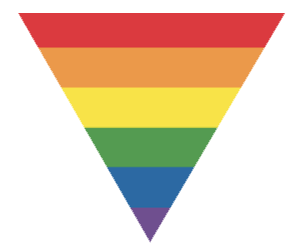Written by Katelind Biccum
How many of you can remember the first time you checked your body image against societally acceptable body standards? I have learned throughout the years that it is often earlier than we’d like or even should be comparing our bodies to others. Magazines and television deliberately advertise weight loss and diet culture. I remember growing up and watching shows like “The Biggest Loser,” “America’s Next Top Model,” and “Victoria’s Secret Fashion Show,” all of which were marketed as being entertaining. It’s no wonder millennials and Gen Z struggle with self-esteem, body image perceptions, and disordered eating.

Societal beauty standards have shifted and evolved, but during the early 2000s, there was a resurgence of slimmer, petite bodies – what some people might consider ‘heroin chic.’ Consumers are constantly bombarded by products for hair removal, skin lightening, hair colour, and, most dangerous of all, weight loss products. Diet culture has a chokehold over society, with it being a multibillion-dollar industry aimed at capitalizing on individual’s insecurities and shaming us into weight loss and disordered eating patterns.
Navigating society as a fat person seems like a constant uphill battle, one you are always losing. Living in a larger body comes with substantial hurdles – please do laugh at the irony of this; fat people could not possibly jump over hurdles, right? Gordon (2023) breaks down myths about fat people in her book:
(1) being fat is a choice,
(2) but what about your health?
(3) fat acceptance glorifies obesity, and
(4) fat people should…

The most anger-inducing part of this book is when she discusses going to the doctors because as a fat person, you are never taken seriously. Imagine entering a doctor’s office for a broken bone, only to be dismissed and gaslit into believing your weight caused this injury, and weight loss becomes a common prescription.
How can you combat these standards and shift your body image perception? I present to you, self-compassion. Self-compassion is comprised of three elements:
(1) self-kindness versus self-judgement,
(2) common humanity versus isolation, and
(3) mindfulness versus overidentification (Neff, 2022)
Despite what society would have you believe; you are allowed to love yourself wholeheartedly and unapologetically. I encourage you to develop a personal affirmation when you have a challenging body image day. Some examples might be:
“May I be kind to myself in this moment,”
“My body is the least interesting thing about me,” and
“I am grateful to my body for sustaining me.”
Radical self-acceptance is our best weapon against society’s beauty standards. If all else fails, you are allowed to give society the finger and acknowledge the anger that comes from this harmful cycle. Self-compassion is all about giving yourself what you need in that moment, whether it be a hug, kind words, or watching your favourite movie/TV show.
Embrace your uniqueness and acknowledge your strength.
If any of this resonates with you, please reach out and explore these ideas with me.
~Katelind

References
Gordon, A. (2023). “You Just Need to Lose Weight.” Beacon Press.
Neff, K. D. (2022). Self-Compassion: Theory, Method, Research, and Intervention. Annual Review of Psychology, 74(1), 193–218. https://doi.org/10.1146/annurev-psych-032420-031047
